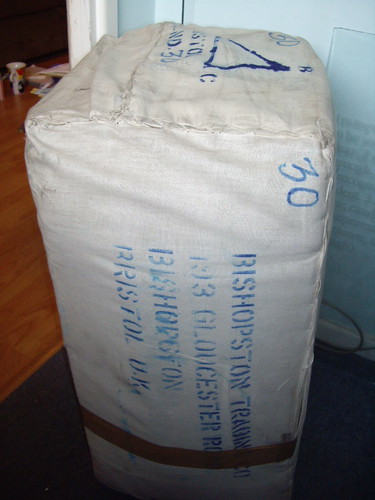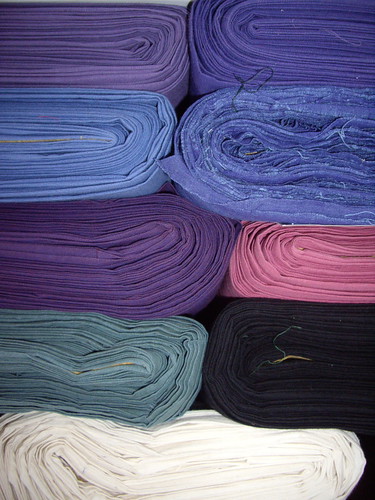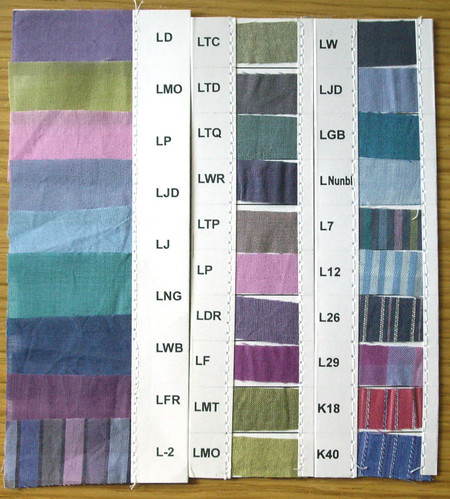Bishopston Trading closes tomorrow, after 28 years in business. This is the statement, in full, from their website:
“It is with great regret and sadness that we have to announce that, after 28 years in business, the Bishopston Trading Company will close at the end of July 2013.
The village of K.V.Kuppam, where our clothes have always been made, has seen huge changes. An entire generation has grown up since we started. All our workers’ children have been educated and very few are now seeking jobs as tailors, embroiderers or appliqué workers. The problem is even more acute with our weavers. In 1985 we formed a partnership with a community of handloom weavers in the village. Weaving is a traditional craft skill, passed down within families. We helped pay for a scheme to enable weavers’ children to stay in school until they were 17 years old. Many have been able to go on to higher education. There are now not enough weavers in the area to keep up with the supplies we need.
While India has developed financially, Britain’s economy has been slow for five years, and this has changed the buying habits of our customers. Our customers tend to be thoughtful, concerned, cautious people (a bit like us). They worry about the environment and over consumption and debt. They have not deserted us but are buying less – this is particularly evident with our online customers.
We can now no longer continue and wish to close down our business voluntarily and ethically and in an honourable way.
We would like to thank our loyal customers, in Britain and around the world, who have supported us for many years.”
The photos, above and below, are from the one and only wholesale order that I placed with them in 2008. To be perfectly honest, I ordered far too much, and five years later I’m still using it. I may have been a small and infrequent customer of Bishopston’s, but I’ll still miss them.
There’s something that intrigues me about their statement though, and it’s this:
All our workers’ children have been educated and very few are now seeking jobs as tailors, embroiderers or appliqué workers. The problem is even more acute with our weavers.
So we’ve set up these co-operatives, and we’ve paid fair wages, and we’ve educated all the children… but there’s nobody left to do the weaving. Because traditional skills, passed down from person-to-person, generation-to-generation, simply aren’t valued any more.
Now I’m certainly not saying that any child, anywhere in the world, should have to forego a formal education in favour of sitting at home with multiple generations of their extended family and learning to weave. But if nobody learns how to weave, or sew, or lay bricks, or install plumbing… because those kinds of practical skills simply aren’t valued in an “educated” society… then how long will it be before we’re all naked and homeless? How bad do things have to be before actual practical skills are seen as anything other than menial?
I’ve learnt a lot of practical skills over the years. I very much doubt I could remember my Girl Guide training in how to make a shelter and find clean water, but I can still make a damn good stand for a plastic washing up bowl, given enough pea sticks and a handy ball of string! I’m hopeless at cooking, but I know how to make bread, how to make butter, and how to forage for some edible plants. (And how to burn baked beans inside the can into an inedible mush over a campfire. Thanks again, Baden-Powell!) I may not be retting a pile of stinging nettles to weave my own cloth, but I’m learning to spin wool, and I can knit, and I can sew and mend my own clothes. I realise that “naked and homeless” is a shameless piece of hyperbole. And I’m all too aware of the hypocrisy of decrying any skills other than the strictly practical whilst sitting at my computer shouting pointlessly at the internet.
What I’m searching for is balance. Something that seems to be lacking almost everywhere I look right now.






